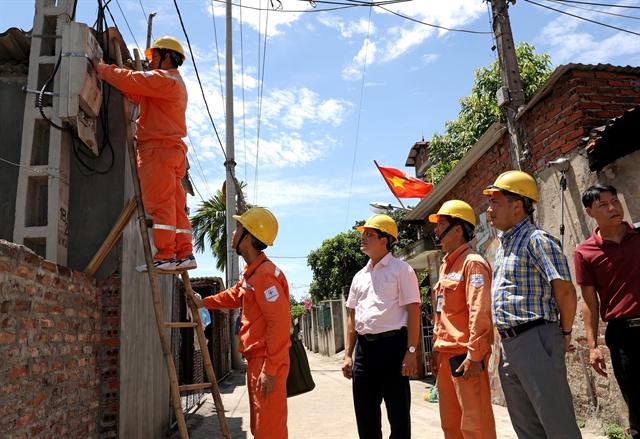Vietnam Electricity (EVN) announced there were only a few cases of incorrect electricity bills after checking its records from June 25 to July 3.

Vietnam Electricity (EVN) announced there were only a few cases of incorrect electricity bills after checking its records from June 25 to July 3.
EVN’s Deputy General Director of Vo Quang Lam said branches have disciplined related managers and staff who were responsible for incorrect filings as well as implemented better and stricter electricity measuring to avoid similar problems in the future.
Lam said the inspection teams, including an inter-sectoral team from the Ministry of Industry and Trade, the General Department of Standards, Metrology and Quality, the Vietnam Consumer Protection Association and EVN, have conducted inspections at all five Power Corporations across Viet Nam on electricity meter readings and bill calculations.
EVN said it has strictly complied with the law on measurement of electricity meters in the inspections.
The teams concluded: “All meters are in accordance with the approved samples, the certificates including verification stamps and inspection seals are in compliance with regulations and still valid.”
EVN also responded to all requests from customers regarding their electricity bills.
Lam said: “ENV will enhance communication with customers as well as improve customer services in the future.”
According to EVN, increasing electricity use was mainly in households with air-conditioners. For households that do not use air conditioners but fans, the bills do not change much.
Earlier, Nguyen Viet Dung, director of the Institute of Heat and Refrigeration Science and Technology, Ha Noi University of Science and Technology, released a study showing that electricity use in the four months of summer was about 20 to 50 per cent higher than use in other months. In particular, the power consumption of air conditioners accounts for 28-64 per cent, refrigerators from 6-22 per cent, the remainder is electricity consumption of other devices such as TVs, lighting and appliances.
According to other analysts, the power consumption of air conditioners will increase depending on the gap between temperatures. If the indoor air conditioners are set too low while the temperature outside is much higher, the devices consume a lot more power.
For energy saving, users are asked to set the right temperature. For example, if the outdoor temperature is 35 degrees Celsius, the indoor temperature should be about 26-28 degrees instead of much lower.
Energy experts also suggest households have good air conditioners, install them in the right places and clean them regularly for the best energy saving results. — VNS





